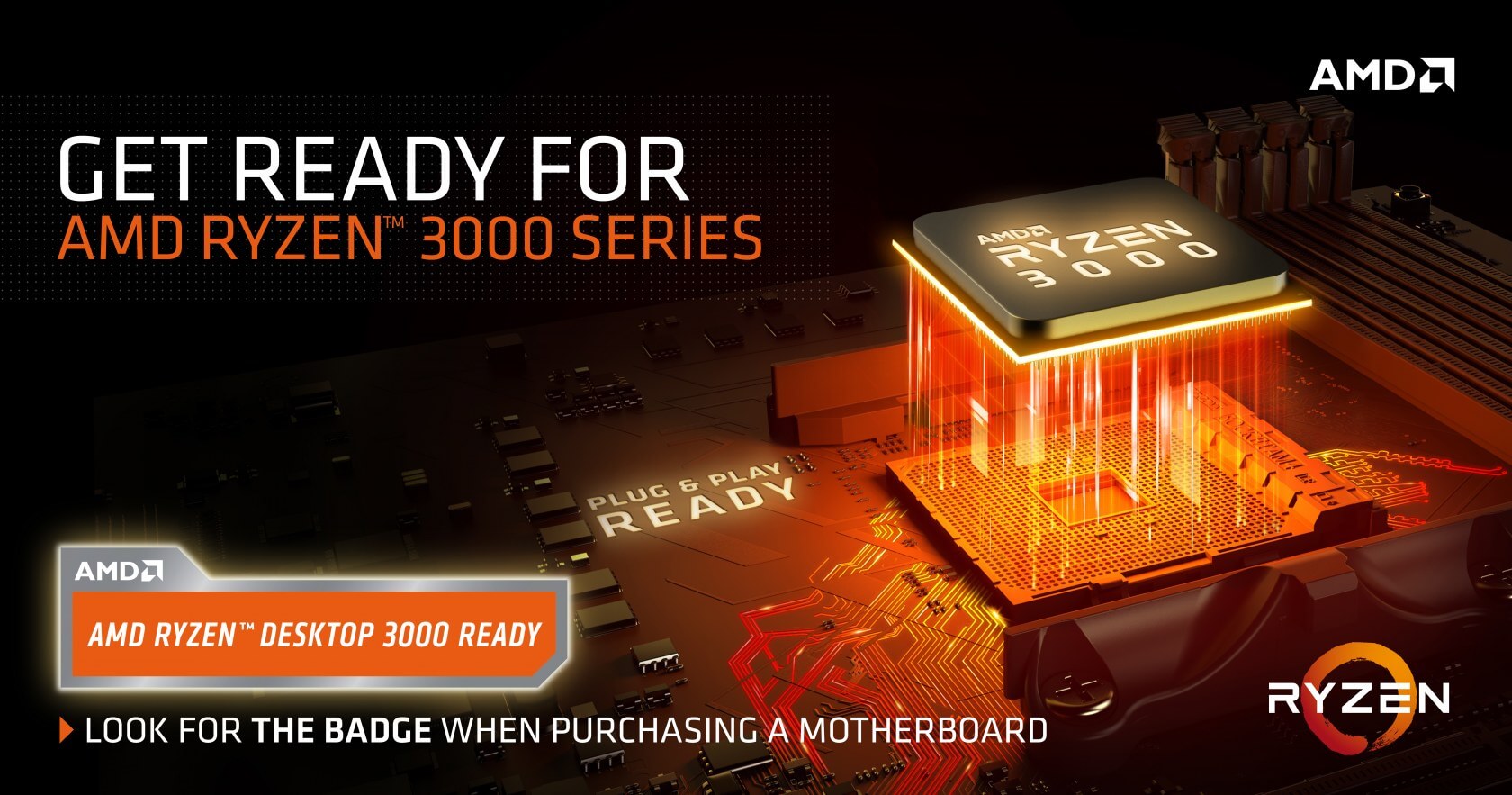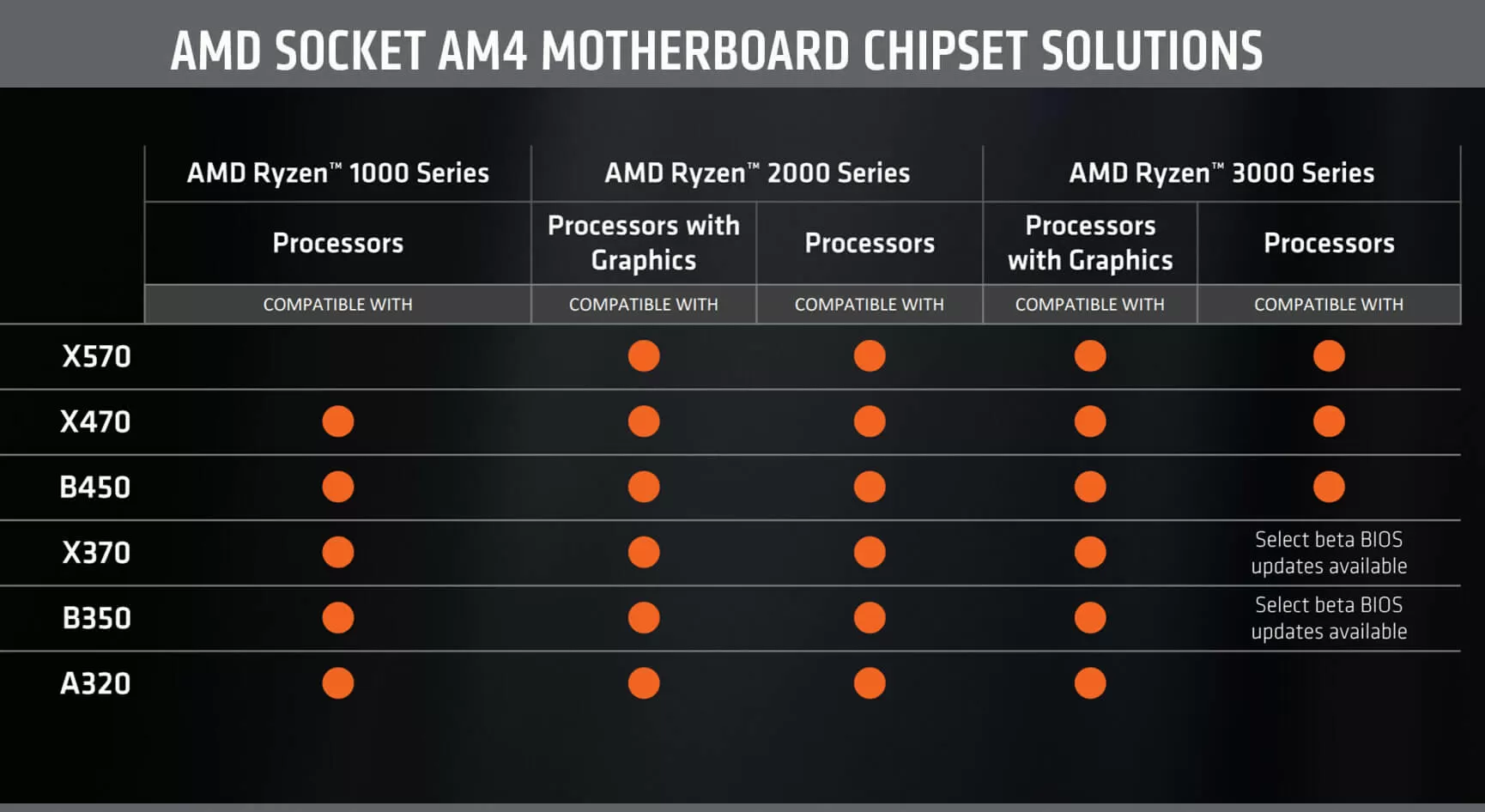In context: While AMD's goal of maintaining socket AM4 compatibility with Ryzen through 2020 has been an audacious one, it's one the company has delivered on quite admirably. However as the Ryzen ecosystem grows generation-over-generation, backwards compatibility is increasingly becoming more of problematic, particularly for motherboard vendors. AMD's motherboard manufacturing partners may not want to support older products and some limitations are starting to arise.
When AMD launched the Zen architecture and the first generation of Ryzen processors, AMD pledged to support the AM4 socket through 2020. This was in stark contrast to Intel's heavily fragmented and price-demarcated ecosystem. True enough, AMD's AM4 socket ecosystem has been refreshingly simple, offering backwards and forwards compatibility with Ryzen.
With the arrival of the long-awaited Ryzen 3000, AMD is again demonstrating its support for the AM4 socket. Alas, there's a caveat. At some point, it becomes invariable that not every processor will be compatible with every chipset or motherboard. Such is the case with AMD's new pinnacle X570 chipset.
Ryzen's earliest progenitors such as the Ryzen 7 1700 or Ryzen 7 1700X are not compatible with AMD's latest X570 platform, as gleaned from a blog post by AMD with an accompanying chart. Raven Ridge APUs like the Ryzen 3 2200G and Ryzen 5 2400G are supported. The budget-minded A320 chipset will also not see support for Ryzen 3000, marking the first time Ryzen silicon isn't fully backward compatible across chipsets.
While it doesn't make a lot of sense to pair a first-gen Ryzen chip with an X570 motherboard for a new build, this does eliminate an upgrade path for those still on the first-gen Ryzen platform. For example, those who don't feel need more processing power but would like to add support for PCIe 4.0 that is only available on AMD's latest platform.
Otherwise, AMD retains drop-in compatibility with second-generation Ryzen silicon, and X470 and B450 chipsets are compatible with every current generation of Ryzen. Select X370 and B350 boards will require a BIOS update for Ryzen 3000, some of which we've already seen roll out.
AMD is also trying to circumvent some of the compatibility issues its incurred in the past with a new badge. "With the new AMD X570 chipset and AMD Ryzen 3000 series processors, we're launching Ryzen 3000 Ready. If a new X570, X470 or B450 motherboard is calling your name, just look for the 'AMD Ryzen Desktop 3000 Ready' badge on the box to ensure processor drop-in compatibility," said Erin Maiorino, Ryzen Desktop Product Marketing Manager at AMD.
Update (5/30): AMD reached out to let us know they have updated their chipset support guidance noting that 1st-gen Ryzen processors with Radeon Graphics (Raven Ridge) will be supported on the X570 platform.

